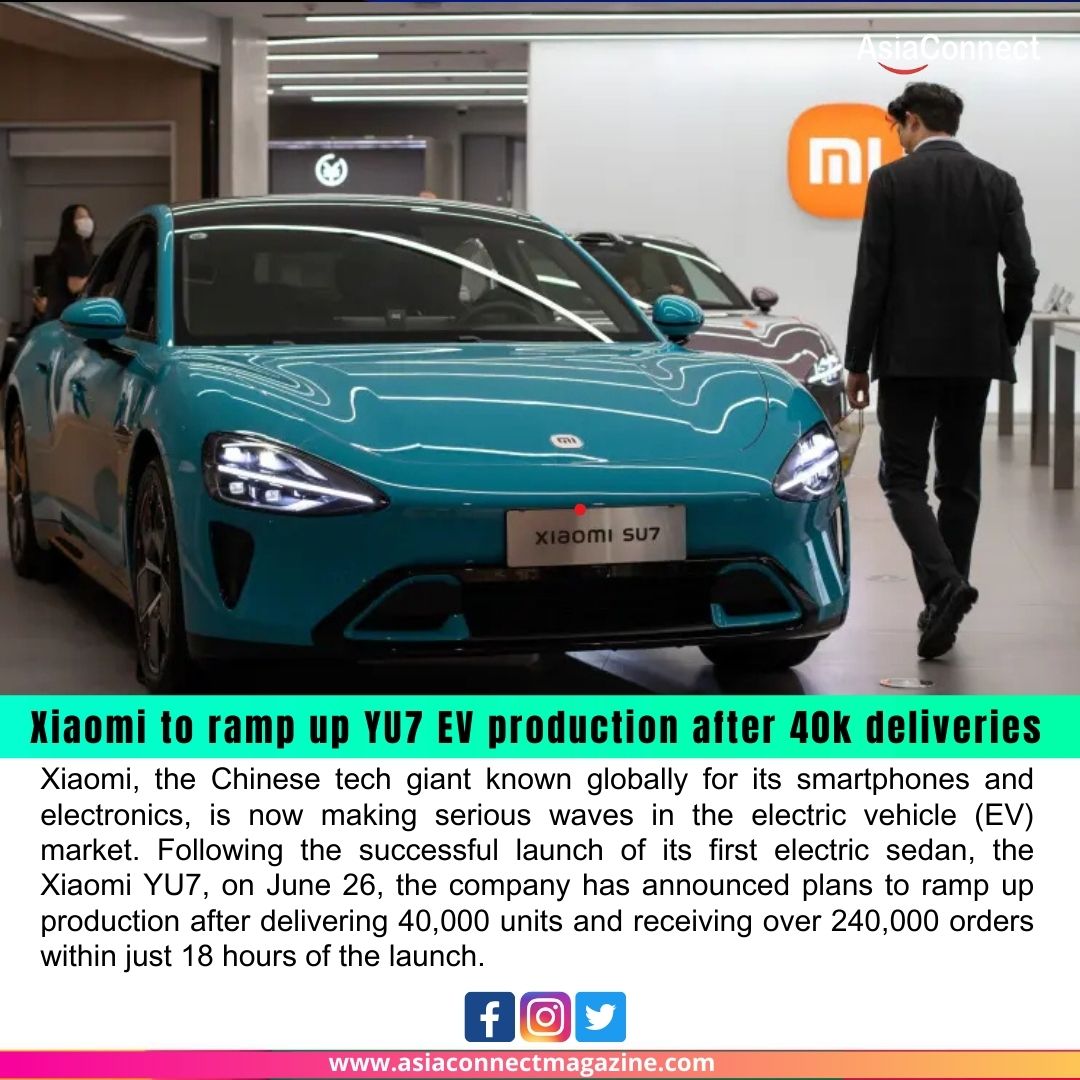Xiaomi, the Chinese tech giant known globally for its smartphones and electronics, is now making serious waves in the electric vehicle (EV) market. Following the successful launch of its first electric sedan, the Xiaomi YU7, on June 26, the company has announced plans to ramp up production after delivering 40,000 units and receiving over 240,000 orders within just 18 hours of the launch.
This overwhelming response highlights the growing excitement around Xiaomi’s foray into EVs and its ability to compete with established players in the electric mobility space.
YU7: Xiaomi’s Bold Entry into the EV Market
The Xiaomi YU7 marks the company’s entry into the electric vehicle segment, aligning with its long-term vision of becoming a key player in smart mobility. Positioned as a premium electric sedan, the YU7 combines sleek aesthetics, powerful performance, and deep software integration — tapping into Xiaomi’s strengths in hardware and smart ecosystem development.
Early reviews and customer feedback suggest that the YU7 offers a competitive mix of:
- High-performance electric drivetrain
- AI-based driving assistance
- Integrated MIUI-based smart dashboard
- Long-range battery performance
- Futuristic interior with smart connectivity features
Massive Demand: 240,000 Orders in 18 Hours
The launch of the YU7 generated massive consumer interest, with 240,000+ pre-orders placed within 18 hours of launch. This kind of demand is rare even for seasoned automotive brands and signals strong market confidence in Xiaomi’s brand, pricing, and product quality.
This level of demand pushed Xiaomi to expedite deliveries and scale production capabilities to meet consumer expectations. With 40,000 deliveries already completed, the company is moving fast to streamline supply chain operations and increase output in the coming months.
Production Ramp-Up and Delivery Commitments
To meet the surge in demand, Xiaomi is expanding its EV manufacturing capacity, leveraging its intelligent EV production plant in China, which uses cutting-edge robotics, automation, and AI-driven quality control.
The company has stated that production ramp-up will be a top priority, with plans to double monthly output to match growing order volumes. Xiaomi also emphasized its commitment to timely deliveries, customer service, and ongoing software upgrades — all of which are part of its strategy to build long-term trust in its EV brand.
Disrupting the EV Market
With the YU7, Xiaomi is directly competing with established EV players like Tesla, BYD, Nio, and traditional automakers pivoting to electric. What sets Xiaomi apart is its unique ecosystem approach — integrating smartphones, smart home devices, wearables, and now vehicles under one seamless platform.
This cross-device integration and focus on intelligent mobility could prove to be Xiaomi’s competitive edge in a rapidly evolving EV market.
Final Thoughts
Xiaomi’s entry into the EV market with the YU7 has already made headlines, thanks to its stellar order numbers and rapid production ramp-up. Delivering 40,000 vehicles in such a short time is no small feat, and the response indicates strong consumer appetite for tech-driven, connected electric vehicles.
As Xiaomi continues to scale production and deliver on its promise, the YU7 could mark the beginning of a new chapter in smart mobility — not just in China, but globally.





